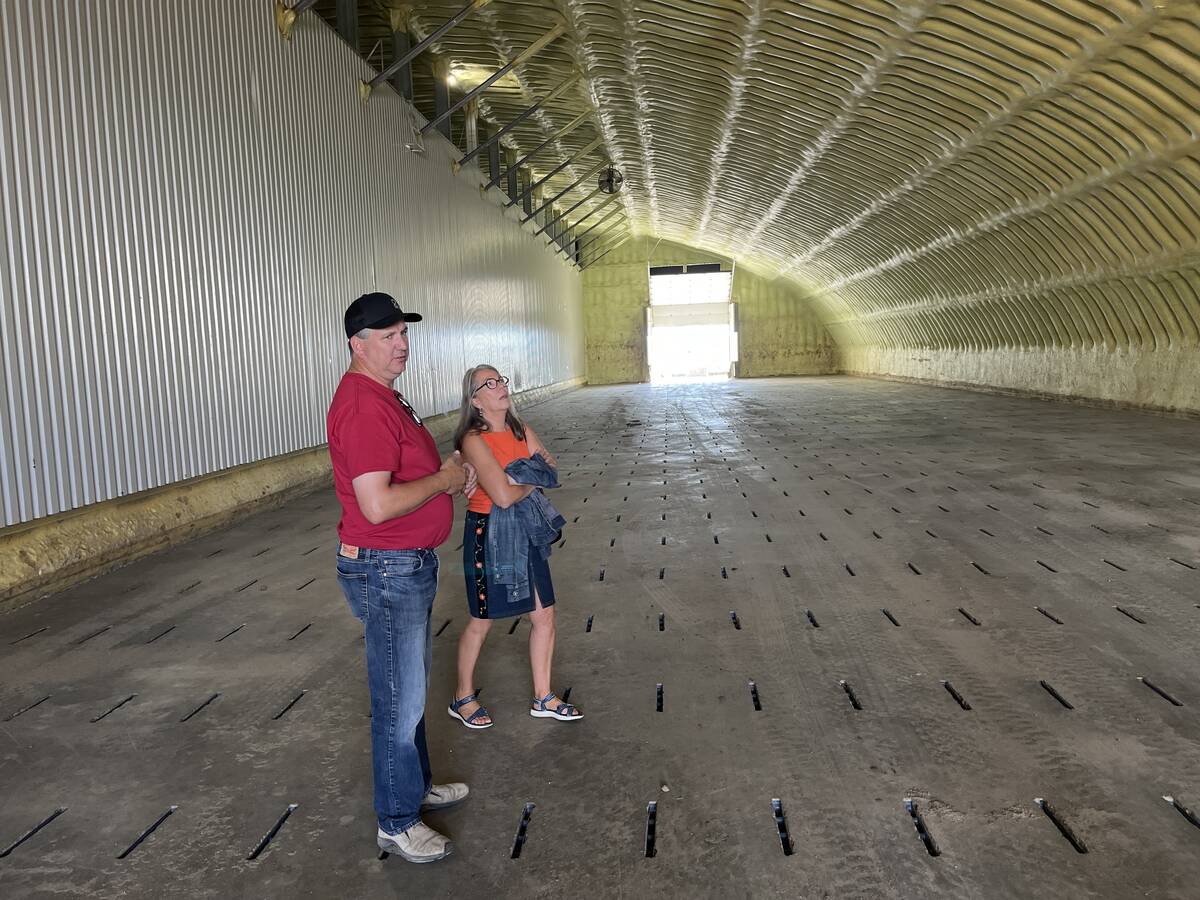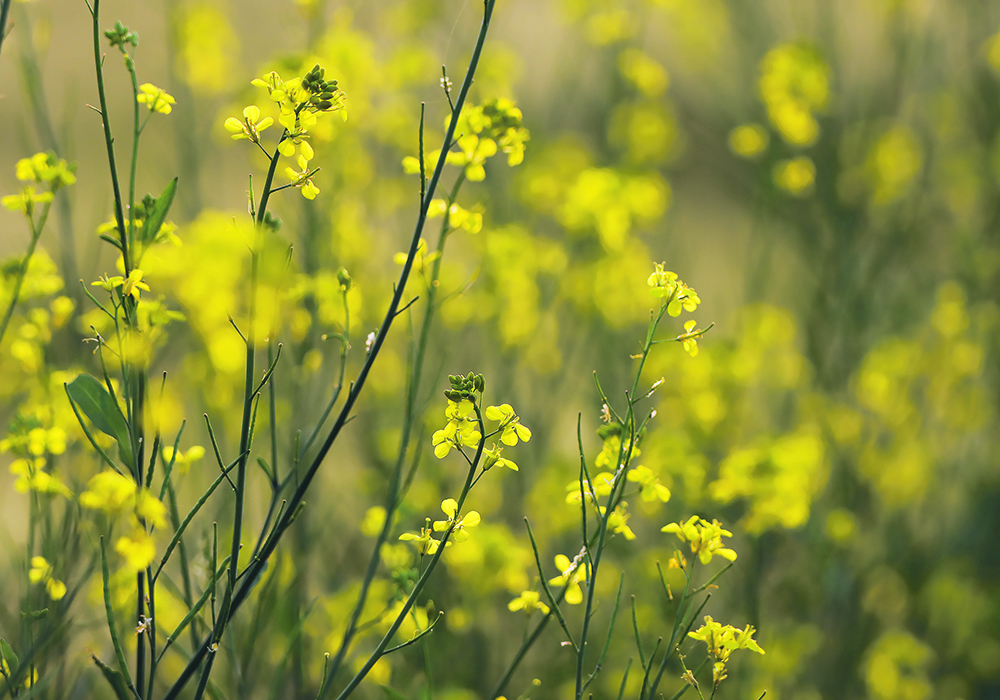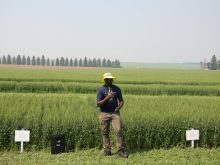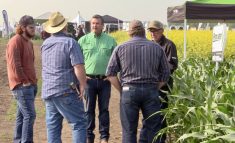WINNIPEG — A Saskatoon company that specializes in bio-fertilizers and bio-controls is poised to expand into the United States.
In November, the department of agriculture in Washington state granted a registration for a product called TerraSanteTM.
MustGrow Biologics Corp. is the company behind TerraSante, a bio-fertility product that’s suited for high-value crops like potatoes, strawberries and leafy greens, said Colin Bletsky, chief operating officer for MustGrow, a public company that trades on the TSX Venture exchange.
The bio-fertilizer is made from mustard seed meal, using mustard grown on farms in Saskatchewan and Alberta.
Read Also

Potato farm requires year-round management
The most recent Open Farm Day in Alberta showcased agricultural producers across the province educating the general public about the process that is required is to get food to their table.
“We are able to extract (from the mustard meal) and formulate into a wettable powder type of product,” said Bletsky, who grew up on a grain farm near Yorkton, Sask.
“When it (TerraSante) breaks down, it breaks down into simple sugars, protein and carbohydrates that feed the soil microbiome.”
The idea is to assist the beneficial bacteria and micro-organisms in the soil, which in turn improves soil health and makes nutrients more available to the plant.
The approval in Washington state is MustGrow’s first registration for TerraSante in the U.S.
In the U.S., individual states register bio-fertilizers and soil amendments.
“It is actually state by state. It is not regulated nationally by the EPA (Environmental Protection Agency),” Bletsky said.
“Now that we have the registration in one area, we’re hopeful that we get more of these other states, sooner than later.”
MustGrow is targeting states like Oregon, California, Arizona, Texas and Idaho, which produce high-value fruits, vegetables and potatoes.
The cost of the bio-fertility product is likely too high for broad-acre crops like soybeans or corn in the U.S. Midwest.
The Saskatoon company probably won’t bring TerraSante to market in Canada, mostly because the speciality crop market is relatively small.
“For this specific product, we’re focused on the U.S. and we do have plans in place to move it out to other markets,” Bletsky said.
“High value crops in Canada (are) very limited.”
From a bigger perspective, the global market for bio-fertility products like TerraSante could soon explode.
Acumen Research and Consulting, a markets research firm, pegged the global market for bio-pesticides, bio-stimulants and bio-fertilizers at US$11 billion in 2021.
Other reports say that number is smaller.
But most analysts seem convinced that the market for agriculture biologicals is about to explode.
“(It) is expected to reach US$34.9 billion by 2030 with a considerable (annual growth rate) of 13.3 percent,” Acumen said in a 2022 report.
One of the main drivers of that potential growth is government and public opposition to synthetic fertilizers and pesticides.
“The government and regulatory side, continues to move in favour of biologicals,” Bletsky said.
“There are lot of regulations coming on fertilizers as well as chemicals. Having a natural, organic product that we eat (mustard) and could be used in the soil… it does have a tremendous amount of value.”
For now, MustGrow plans to manufacture TerraSante and other products at its production plant in Western Canada.
In the future, it hopes to open production plants in the U.S. and elsewhere, Bletsky said.
“The reason we’re based here, is most of the world’s mustard supply is grown in Western Canada.”


















